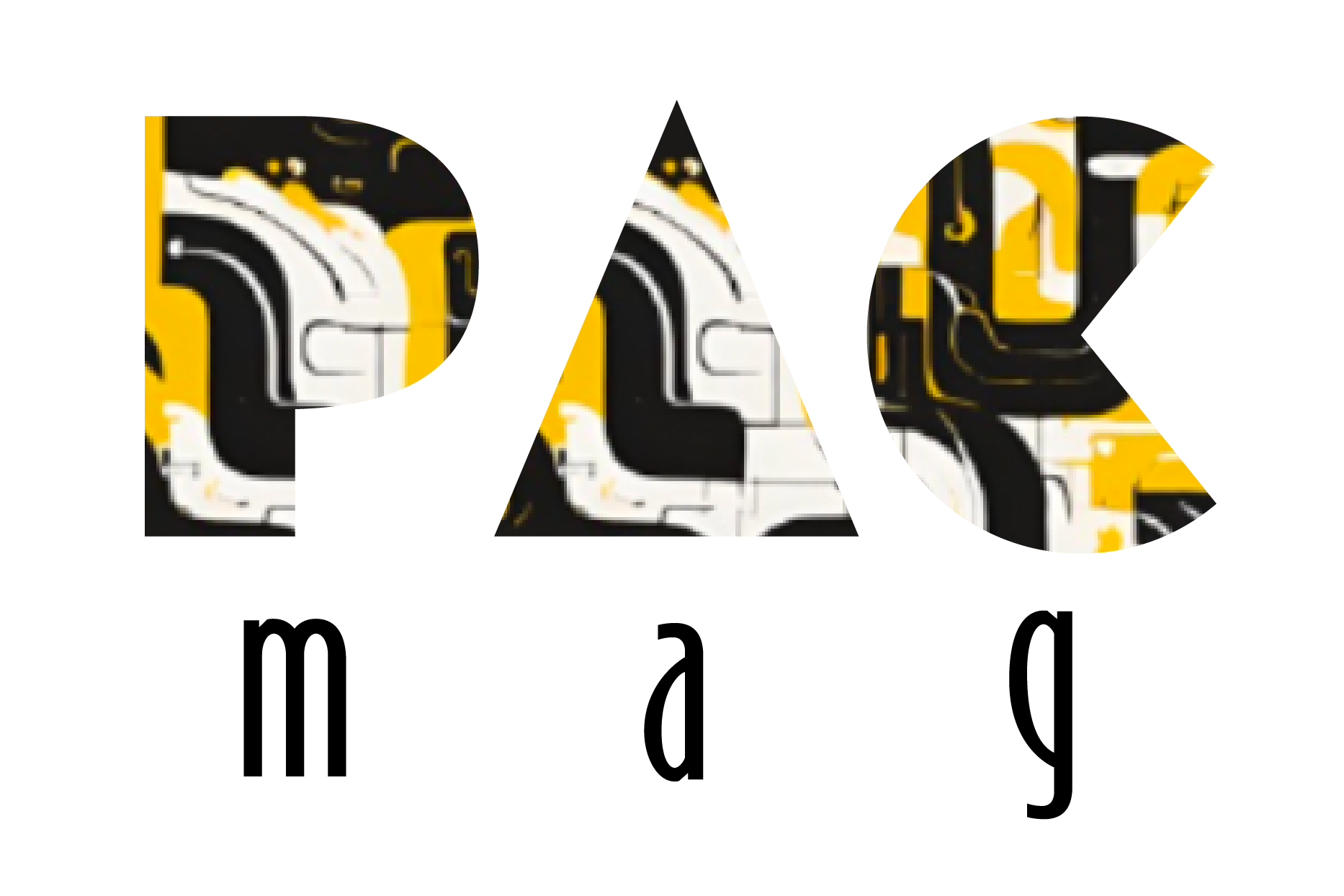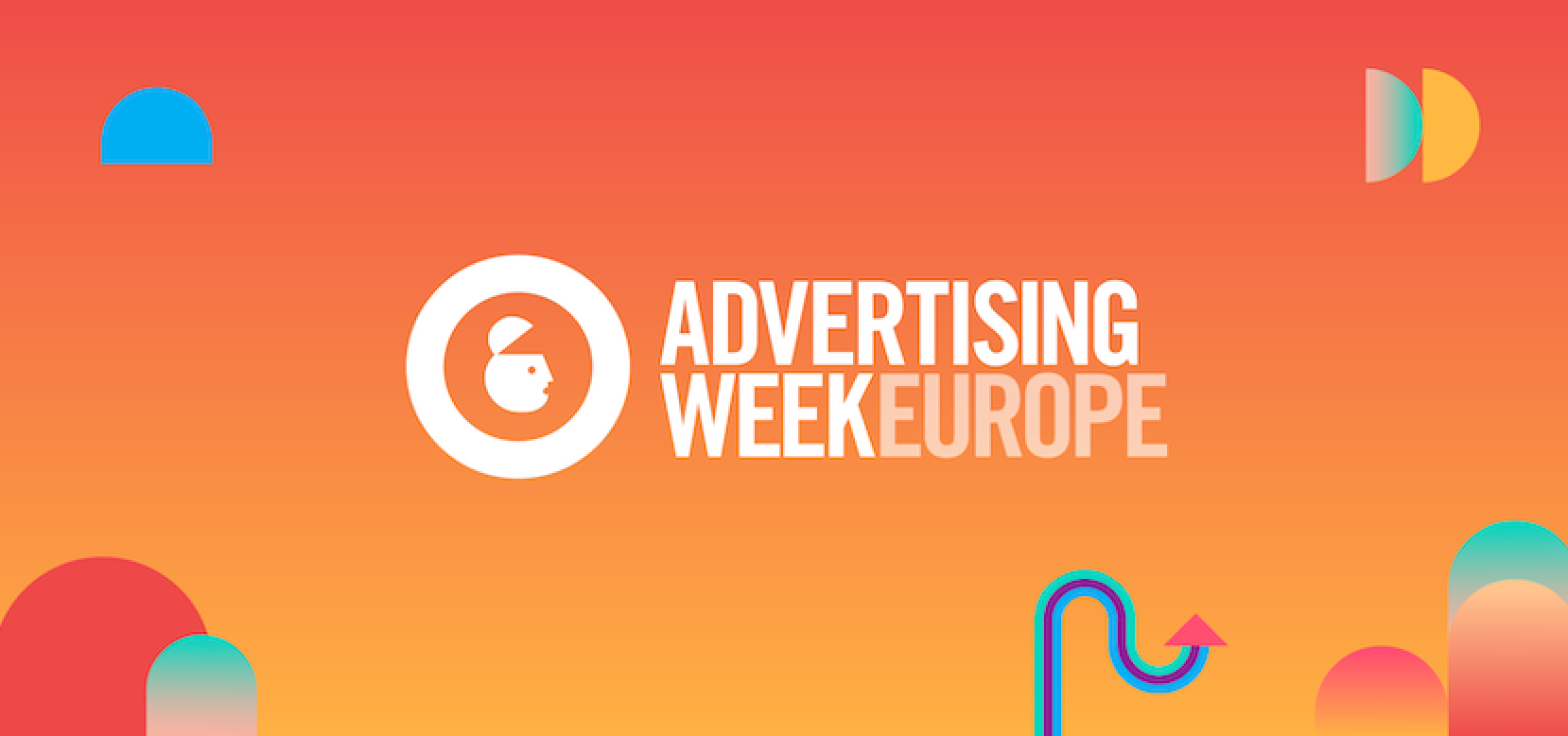It’s easy to assume that advertising is simply about selling — products, services, clicks. But at Advertising Week Europe 2025, it became clear that the industry sees itself as something bigger: a cultural stretch, a mirror for society, and perhaps, in some ways, a kind of religion. Held in London at 180 Studios this spring from April 1 to 3, Ad Week brought together artists, brands and influencers— all asking a simple question: how do we connect with people now? Jessie J dropped emotional wisdom, KFC pitched branding as belief, and Meta reminded us that AI is slowly taking over our lives. But beyond the stage lights, there was also a quieter current running through the talks: urgency. Speakers repeatedly returned to the idea that audiences aren’t passive anymore — and brands can’t afford to be either.
One of the more grounded — yet unsettling — conversations came from Shruti Dube, UK Director at Meta. “The world really does need AI,” she said, not as a slogan but almost as a warning. Speaking against a backdrop of international unrest and a crisis in public services, Dube positioned artificial intelligence not just as a business solution, but a necessity: a tool to address global problems from education access to healthcare breakdown. But the most striking part of her talk wasn’t about Meta’s current products (though she mentioned Meta AI already has 700 million users, aiming to be around 1 billion by the end of 2025). It was her framing of AI as the next chapter in human connection, even being used as a tool for the smallest everyday tasks, like having an AI to pick outfits in the morning and to help your children with their homework and daily planning.
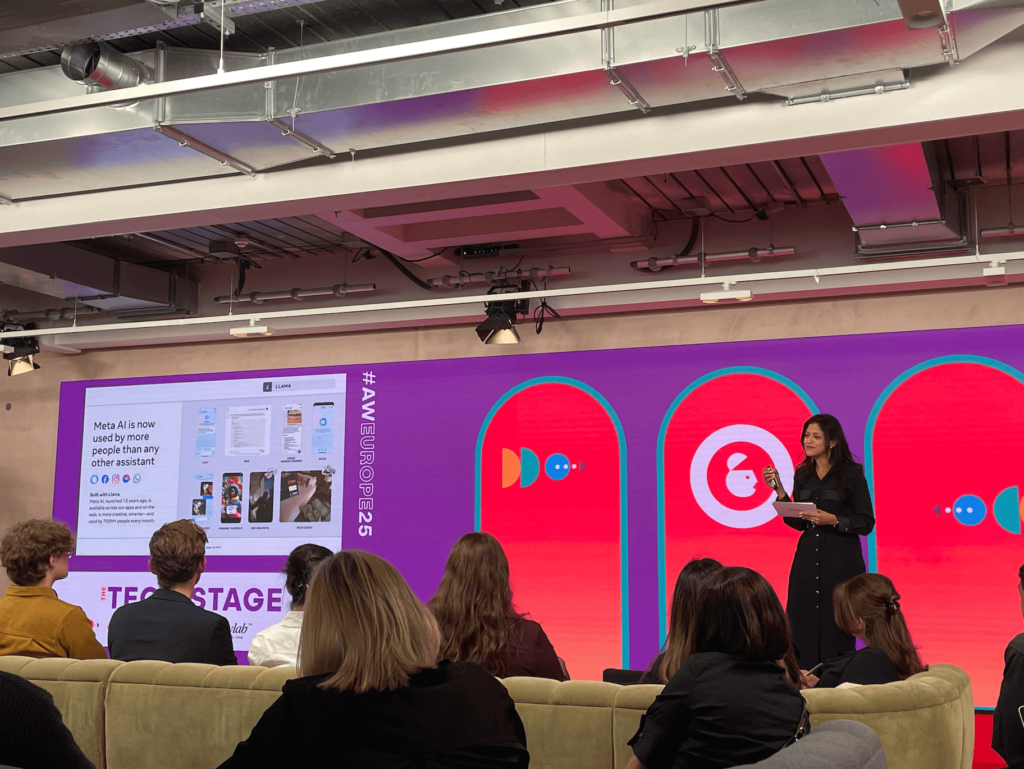
In a more reassuring and fun register, Purnima Lamba from Unilever reflected on how Vaseline, a 150-year-old product built in 1870, continues to move “at the speed of culture.” Her answer? Listen — not to trends, but to how people use your product. “The inspiration is seeing how clients use it in different ways,” she said. That feedback loop is where longevity lies. Vaseline may have been the oldest brand on the Ad Week stage, but it felt oddly modern in its humility. A campaign launching this week will feature verified TikTok Vaseline “hacks,” turning user-generated content into the brand’s evolution engine.
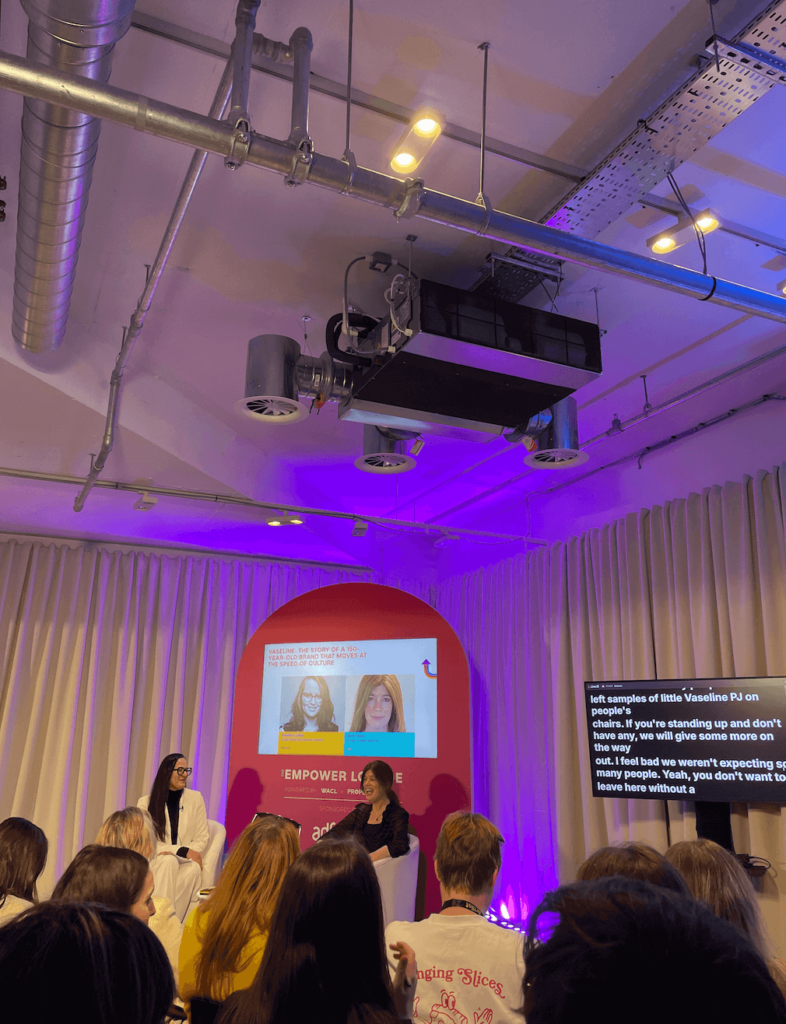
In contrast, Coca-Cola’s Javier Meza leaned into scale. “We were born in the USA,” he said, “but long ago we abandoned the US.” He didn’t mean it politically, but that the brand had become local everywhere. “Every contact with the consumer is an experience,” Meza argued, from product packaging with personal names, to football sponsorships like at the FIFA World Cup. But behind it all, he insisted on one priority: “Grow the consumer base.” Not just through frequency or price, but through more people. His team uses AI and visual intelligence to personalise experiences, but he warned against wasting time on people who don’t already like the brand. “It’s a waste,” he said simply. “Aim for those who do.”
How do you get someone to care — let alone stop scrolling? This was the question tackled in a panel hosted by Google’s Eldad Weinberger alongside creatives from Artlist, VML UK, and Channel 4. “In a world where attention is fragmented, trust is everything,” Weinberger said. Charlotte Greywoode of VML added that brands are finally waking up to the power of long-form content. “We’re making documentaries, short films — which is what clients are more interested in today.”
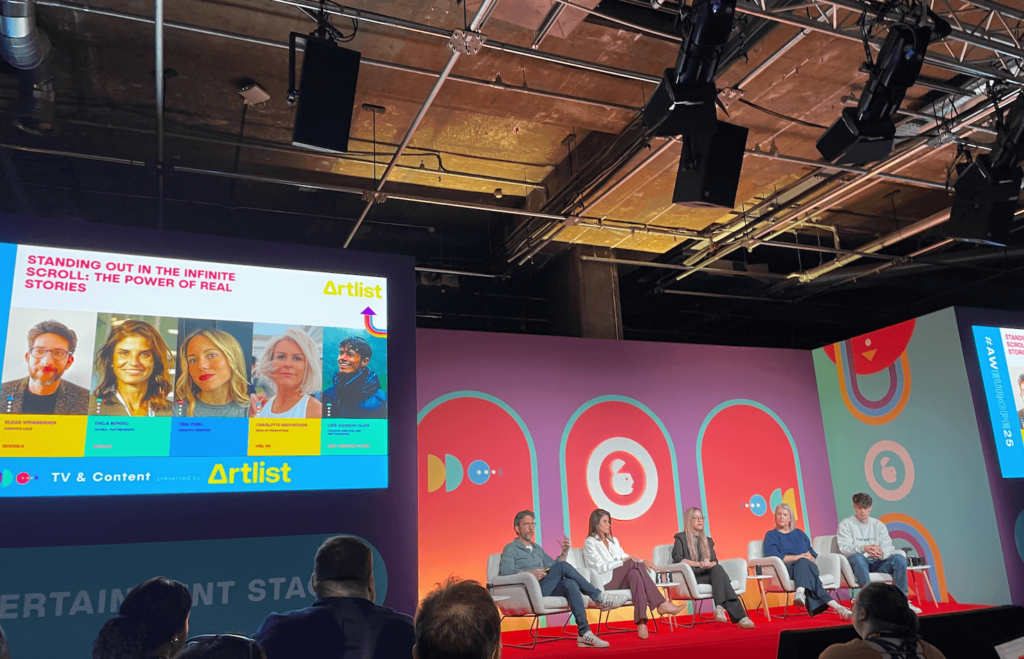
Jessie J, who is making a musical comeback soon, insisted on the impact of realness and authenticity as a celebrity. “I don’t see myself as a brand,” she said. “Jessie J is a brand name, sure. But I’m a mother, I’m a person.” Her perspective on branding was emotional and human. This was seen when she first stepped on stage and took around 20 seconds to make eye contact with as many people in the crowd as she could. She insisted on feeling closer to the people listening to her, which is rarely seen for a celebrity of her level of fame.
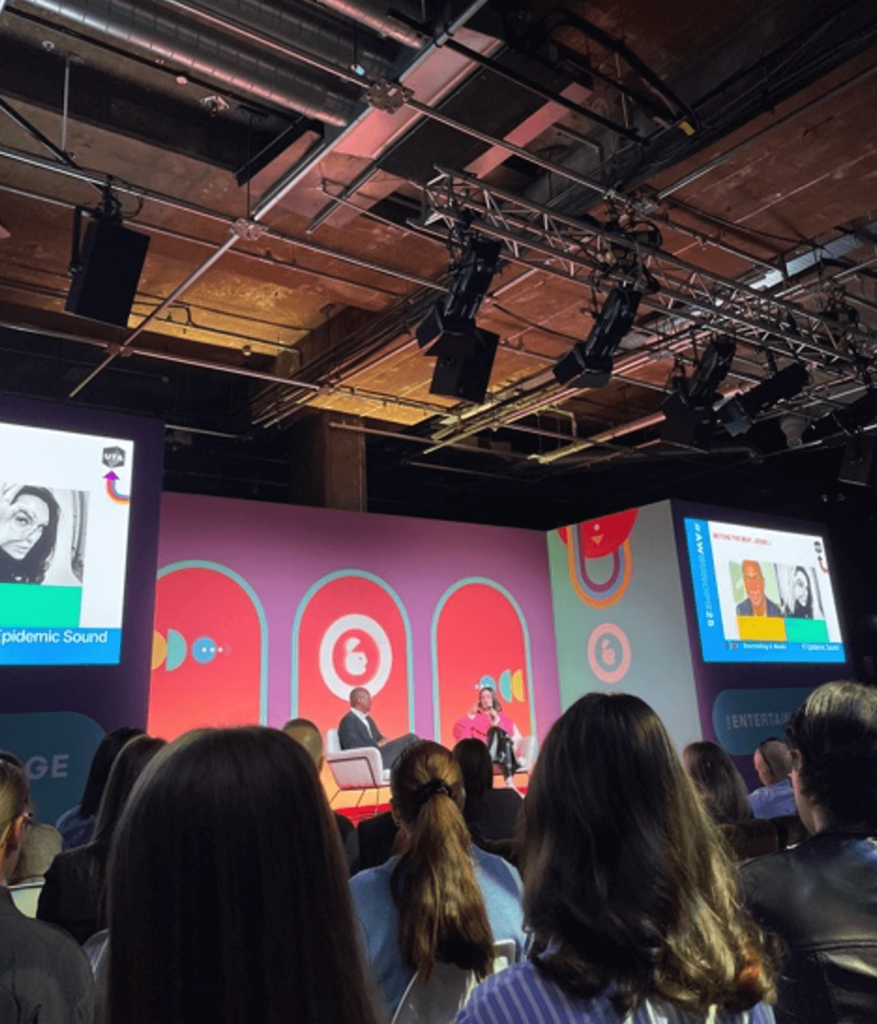
KFC’s Monica Silic and Mother London’s creative director Martin Rose offered one of the most joyfully bizarre sessions of the week. Titled How to start a cult, it explored how the brand had leaned into quasi-religious devotion in its latest campaign: Believe: All Hail Gravy. What Silic kept repeating throughout the session was “We believe in chicken”. Beneath the absurdity was a real strategy: differentiation through storytelling. “A clear strategy rooted in the brand, ultimately leads to distinction,” said Rose. You’re not just selling food. You’re offering people a community to connect with. He compared this campaign to Disney’s latest Snow White, which failed immensely, specifically because it was trying to incorporate so many elements into the film when all you need is one consistent theme. Kashif Dalvi of Assembly made a similar point about luxury. “Experience is the new trend,” he said. Competing with other brands isn’t just about the product; it’s about the experience of the purchase. Prada shops for example, double as cafés and galleries. When identity is performed through consumption, the more immersive, the better for a business.
Perhaps no platform appeared larger than TikTok — even when it wasn’t the focus of a panel. Channel 4’s Rak Patel and influencer Adeola Patronne discussed Gen Z, attention spans, and the digital revolution. Their verdict? Trust is the new premium currency — and young people know when they’re being sold to. Harley Ilott, senior manager at Snapchat Inc., added another Gen Z perspective, saying “Snapchat is where 90% of Gen Z goes to talk to their friends in the UK.” Advertisers need to understand that they should be authentic if they want to be welcome on this app, which promotes authenticity.”
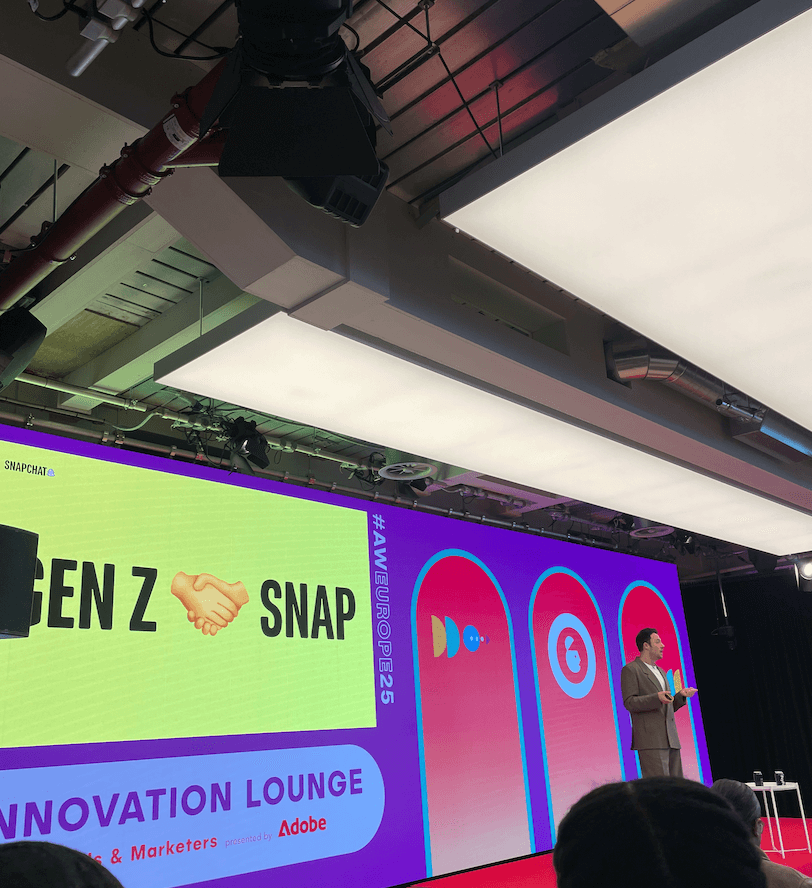
Nina Bibby from Barclays mentioned that Barclays is the biggest investor in women’s sports in the UK, showing how large banks are also chasing cultural relevance. Elsewhere, the comedian Paddy McGuinness and L’Oréal ambassador Davina McCall reminded us that humour remains one of advertising’s most powerful tools: “Making someone laugh is powerful.” Ad Week Europe 2025 didn’t just showcase campaigns — it revealed an industry on the edge of transformation. Brands aren’t just trying to sell anymore. They’re trying to connect and matter. Brands need to stop thinking like businesses and start thinking like people.
